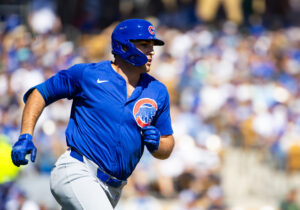Another Look at Baseball’s Origins
With the Boston Red Sox and New York Yankees set to play in London, many efforts are being made to remember England’s baseball history, including the fact that the island nation lays its own claim to baseball’s invention. While the origins of baseball are surrounded in mystery and more than likely lost to the passage of time, one thing is certain, Abner Doubleday did not invent baseball in Cooperstown, New York.
The Doubleday Myth
After returning from a worldwide tour with stops in places such as Australia, Egypt, and Italy, Albert Spalding (yes, the founder of Spalding Sporting Goods) and his team returned home to a banquet in the team’s honor. At this banquet, attended by notable figures such as Mark Twain and Theodore Roosevelt, a chant broke out, “No rounders! No rounders!”
In 1905, with baseball ready to firmly assert itself as America’s pastime, some of the sport’s most influential people gathered and decided to fix the game’s murky history. The Mills Commission was established to invent an all-American origin story for the sport. Abraham Mills, then President of the National League, was at the head of the commission that included six other baseball executives.
The Mills Commission “Determines” Baseball’s Origins
The Mills Commission put out multiple advertisements in multiple national newspapers imploring anyone who may have an idea about baseball’s origins to submit it to the commission. In response to this, a mining engineer from Colorado claimed he witnessed Doubleday transform a game of “town ball,” a widely recognized regional ancestor to baseball, into “base ball” (in Cooperstown, N.Y.) via a series of rule changes. The engineer, Abner Graves, even went as far to include that Doubleday himself had called his game “base ball.” Without investigation, the commission decided to fully endorse the story. For an exhausting number of reasons, it has been proven without a doubt that Grave’s story has a variety of inaccuracies, and Doubleday is not baseball’s forefather.
However, to give Doubleday some of his truthful dues, the Union major-general was a big fan of the game and likely spread its popularity by having it played among troops during the Civil War. An American war hero, Doubleday was exactly the kind of figure that could be made into the mythical forefather of baseball. Due to the still largely unknown origins of the game, the belief the Doubleday is baseball’s inventor persists and is a commonly held myth.
Albert Spalding: American Businessman and Baseball Forefather
The aforementioned Spalding was likely the first person to actually record baseball’s rules, earning him a spot in the annals of sports history. As well as popularizing the sport internationally with his world tour, Spalding was one of the game’s first executives. Spalding was the organizer of the National League, the same National League that exists today. Additionally, although not the first player to wear a fielding glove, Spalding is credited with popularizing the glove’s usage.
Alexander Cartwright: Another Possible Forefather
A still-debated “father of baseball,” Cartwright, whose plaque in the Baseball Hall of Fame reads “Father of Modern Base Ball,” comes into the forefather discussion from the fact that he was a founding member of the New York Knickerbockers Base Ball Club. The Knickerbockers, firefighters by day, were one of baseball’s first organized teams and were the very first to don uniforms. Although the team played a style of game more similar to town ball and rounders than baseball, the team slowly evolved into baseball. A variety of firsts have been attributed to Cartwright, but official MLB historian John Thorn disagrees. Thorn argues that aspects such as nine players and nine innings are incorrectly attributed to Cartwright.
Henry Chadwick: An Englishman, Baseball’s First Statistician
England can claim one of early baseball’s most important figures as their own, statistician Henry Chadwick. Chadwick, formerly a cricket reporter and enthusiast watched an 1856 game between the Knickerbockers and the Gothams. Like many Americans, Chadwick was captivated and admired the game’s “lightning pace.” Chadwick also had a direct and important impact on a major rule of baseball itself. A rule changing the definition of an out is attributed to Chadwick’s influence. An out could be made only if the ball is caught out of the air, prior to this an out could still be made if the ball had only bounced off the ground once.
Chadwick developed the first box score based on his work of cricket while still learning baseball. Chadwick is the reason why base on balls does not help a player’s batting average, a fact some believe annoying. A mind for numbers, Chadwick was the first to collect many statistics and bundled them in his annual guide, the Beadle Dime Base-Ball Player. Such statistics in his guide include games played, runs, home runs and strikeouts. Although close with Spalding and others on the Mills Commission, Chadwick repeatedly tried to make clear that the inventor of baseball was not Doubleday.
Main Photo
Embed from Getty Images






